I wrote this article in Japanese and translated it into English using ChatGPT. I also used ChatGPT to create the English article title. I did my best to correct any translation mistakes, but please let me know if you find any errors. By the way, I did not use ChatGPT when writing the Japanese article. The entire article was written from scratch by me, Saikawa Goto.
Introduction
Movies and books covered in this article

Three takeaways from this article
- A world where the stance of “I only see what I want to see” has become pervasive.
- Like the case of “water from the tap,” we after all stop trying to imagine “what’s going on beyond the process.”
- The “tragedy” created by the “motive” of “protecting loved ones”.
Self-introduction article


Published Kindle books(Free on Kindle Unlimited)
“The genius Einstein: An easy-to-understand book about interesting science advances that is not too simple based on his life and discoveries: Theory of Relativity, Cosmology and Quantum Theory”
“Why is “lack of imagination” called “communication skills”?: Japanese-specific”negative” communication”
The quotes used in this article are based on notes taken at the movie theater from movies in Japanese and are not direct quotes from the foreign language original movies, even if they exist.
Living in a World Where We Enjoy “Convenience” Makes Us Indifferent, and This “Indifference” Leads Society in a Bad Direction
People only see what they want to see.

This word is repeated throughout the movie. Yes, this is a work that focuses on “indifference”. How our lives are made up of “indifference”, and how this “indifference” undermines the foundation of human society. Through this movie, where such reality is depicted in an exaggerated form, we can once again realize what kind of society we live in.

We Do Not Imagine “Why We Can Live in Such a Convenient World”
We live in a very convenient world. With just a smartphone, we can access all kinds of entertainment, have various things delivered to our homes, and make payments without cash. We can search for almost anything in the world on the internet, and there is a possibility of connecting with people from all over the world even if there is a language barrier. Many things that humans find “troublesome” have become solvable in a society where you can either pay money or solve them without paying.

We probably don’t even realize how convenient our lives are. It’s like water from the tap. We take it for granted that it’s there when we turn on the faucet. Unless we travel to countries where the water supply is not well developed, we Japanese don’t really think about how convenient it is to have water come out of the tap.
We should feel the same way about the many other conveniences in our society.

We don’t imagine how river water becomes tap water. There must be various technologies and people’s efforts involved, but we don’t think about them. Since it is the very “convenient” to get what we want without having to imagine the “process” of getting it, it is only natural that we stop imagining it.
In other words, “enjoying convenience” is exactly two sides of the same coin as “only seeing what you want to see.”


We can buy chocolate cheaply and get beautiful diamonds because people in developing countries are working for low wages. Or, there are often concerns about the treatment of workers in factories owned by global corporations. Furthemore, while climate change caused by carbon dioxide emissions and ocean pollution caused by plastics are becoming more visible, there are supposed to still many situations where we are unknowingly making things worse.
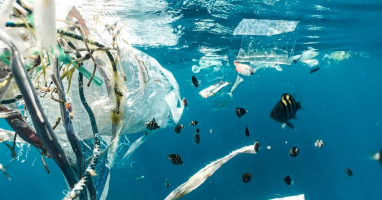

And because we have a system that allows us to avoid seeing that reality, we can “enjoy convenience with peace of mind”. In other word, it means that the hidden premise for feeling “convenient” is “not having to know things”.
In this movie, the relationship between “convenience” and “indifference” is exaggeratedly depicted.
The movie depicts a world where, in the wake of the 9/11 terrorist attacks, the choice was made to sacrifice some privacy in order to eliminate the threat of terrorism. We would have also felt various changes since 9/11, such as the increase of surveillance cameras in the streets called “crime prevention cameras,” and consenting to the “anti-money laundering” provision during banking transactions. However, the movie portrays a society that is much more strict than the one we live in, with a strong emphasis on eliminating terrorism.
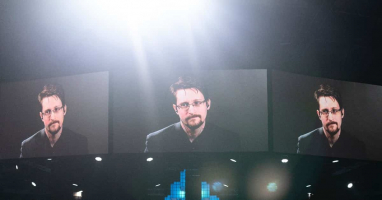
As a result, people are required to connect to every device in their daily lives. It’s an ultra-managed society where everything requires authentication such as fingerprints and iris scans. In the name of combating terrorism, people have had to give up some of their privacy and tolerate it. The infrastructure that makes up society is built on the assumption of monitoring people, making it normal to know who is doing what, where.

On the other hand, in a world connected to devices, they can enjoy more excess “convenience” than the world we live in. People have obtained “convenience” by sacrificing privacy. It means that this has also accelerated the “indifference.”

How “Indifference” Can Change Society
In this movie, there is a further background to depict “indifference”. That is “war”.
In general movies that deal with “war”, there are often depictions of “conflicts brought about by acts of war”. However, this movie can be said to be different from other works dealing with “war” in the sense that such conflicts are not depicted. For the protagonists, the “battlefield” is their “workplace”, and “being involved in war” itself is not the focus of the movie.

Then what does “war” mean in this movie?
The protagonist Clavis understands the brutality of the “war” happening before his eyes, but he is not moved by the reality. This is because he have been trained to be that way. However, he is conflicted when he understands why the “war” was caused. And the very reason is “indifference due to the convenience we enjoy”.

In one scene, a character says to Clavis,
You allow yourself to become insensitive by covering your heart. That is more cruel than killing children.

This is presented as a “lesson for the battlefield,” but it could also be considered a phrase that symbolizes the entire movie. It suggests the cruelty of not caring about the reality in front of them. Furthermore, Clavis is shocked to learn that this phrase applies to “ordinary life” outside the battlefield as well.

Clavis carries out assassination missions under the pretext of “eradicating terrorism.” To him, it’s just a job. However, he becomes confused when he learns that his own “indifference to living in a convenient world” is one of the underlying causes of the terrorism. He realizes that even though he is working to eradicate terrorism, he is indirectly involved in its occurrence.
This inner conflict is also presented to the audience. In short, the movie challenges viewers to consider whether their own “indifference” to living in a convenient world is contributing to the worsening of the world.
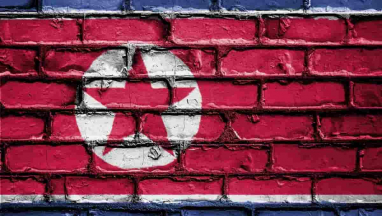
It’s just a job, can’t help it. How many people with mediocre lives have been driven to cruelty by this word?
Without the process being visualized, we can become infinitely cruel. We can do anything because it’s “just a job” when we can’t imagine the direct consequences of our actions. Both “convenience” and “it’s just a job” lead to “indifference to the process,” and we can get away without imagining the tragedies that can occur at the end of that process.

Since former President Trump’s appearance, “nationalism” has accelerated worldwide, which is increasingly eroding our ability to imagine the consequences of our actions. I suspect that we, living in such a society, have become a presence that worsens society just by “existing.”
A Man Who Disrupts Society Using “Indifference”
This movie incorporates clear fiction (although there is no guarantee that it can be asserted) rather than “exaggeration of reality”. This is exactly the part related to the title “Genocidal Organ”, so this article will not specifically touch on it. The element that unfolds under the assumption that “there is a certain organ in the human brain” is very persuasive as an explanation for the “too foolish history” that humanity has walked, and I felt the insight of Project Itoh, who wrote the original novel, in the setting.

This “organ of the brain” does not necessarily cause people to become “indifferent.” However, it is precisely in a world where people’s “indifference” is pervasive that the act of artificially stimulating that “organ in the brain” becomes meaningful. This act leads the whole world to “tragedy,” but people are too “indifferent” to even realize that tragedy. Even the irony that a “social infrastructure” implemented under the pretext of “eradicating terrorism” has resulted in an environment where “terrorism can be freely carried out” can be felt from this movie.


John Paul, a linguist, is a key figure, and his “motivation” is very interesting, making this movie thought-provoking in that regard.
As I mentioned, he is acting in a way that causes “tragedy”. Objectively speaking, it is a terrible and horrifying act. But after watching the movie, some may sympathize with his “motivation.” If we extract only his “motivation” while ignoring the specifics, it becomes “to protect a loved one.” And possibly some may feel that “it can’t be helped if it’s to protect a loved one.”

The stronger the “indifference” becomes, the stronger the sense of “as long as I’m okay” will be. I might also say that indifference is reinforced by not being able to see beyond the process, and that the reinforcement of indifference creates a vicious cycle in which emotions are not moved even when the process is seen beyond the process. In such a society, there may be an increasing number of people who see John Paul’s actions as “good things”.
However, I personally reject his actions on a physiological level. It is still not ethically acceptable.

On the other hand, I don’t feel much disgust towards John Paul himself, as he is aware of his “cruelty”.
The nameless people depicted in this movie can be said to be “exhibiting cruelty due to ‘indifference’.” However, on the other hand, it can be said that John Paul is an “individual who cannot be ‘indifferent’ precisely because he is aware of his ‘cruelty’.” Setting aside the rightness or wrongness of his actions, I felt that John Paul’s humanity of “not being able to be ‘indifferent’ towards the world” was not bad.

If John Paul’s actions were known to society, they would criticize and reject him. However, society itself, due to its own “indifference,” is the one quietly worsening the world. There is no intrinsic meaning in asking “which is worse.” It should be interpreted as a warning of the danger of taking things at face value.
We are worsening the world by “just living.” Realizing this may be the first step necessary to make the world a slightly better place.

Content Introduction
In 2020, Clavis Shepherd, a member of Special Operations I Detachment, was sent to Georgia for an assassination mission targeting John Paul. He had little information about him. He was aiming for the date scheduled for a meeting with the prime minister, who is believed to have caused the civil war in Georgia, but John did not show up after all. The operation failed. To make things worse, the program designed to prevent PTSD malfunctioned, and Clavis had to shoot one of his comrades as an emergency measure.


They are usually adjusted to maintain a psychologically appropriate state for combat and make accurate judgments by implementing measures such as “Sensory adaptation adjustment” and “blockade of pain sensation.” It’s like being a “combat machine.” Therefore, they should not develop PTSD or anything like that and are unable to understand the situation.
In order to track down John Paul, who had disappeared, information about John was finally disclosed to them who failed assassination. He was a linguist who studied at MIT, but later joined Inter Media Group, which proposed image strategies to big players such as countries, and rose to prominence there. He achieved various results in the countries he was in charge of, which led him to be recommended as a government adviser. However, on the other hand, there is a strange reality that internal conflicts or massacres always occur in the countries he was involved in. Is John really involved in something?

Gradually, John’s danger was recognized and an assassination order was issued against him who had also worked with the Department of Defense. However, as the CIA continued to fail in their mission, the task came to Clavis and his team.
They begin an undercover investigation in Prague, where a woman named Lucia Skroupova lives. Lucia makes a living by teaching Czech to foreigners and John was last seen in her room. Five years ago, a homemade nuclear bomb terror attack occurred in Sarajevo, killing John’s wife and child. At that time, John was being in the midst of an affair with Lucia.
After that, John’s sighting information was lost.
Clavis tries to contact Lucia to get information about John, but in the process, he becomes attracted to her…
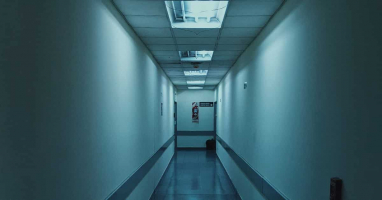
Conclusion

I have read the original book of this work, but it was too difficult for me to understand even if I read it.
The movie is not an easy work either, but it is much easier to understand than the novel. It was great to be able to feel like “Oh, this is what the story was about”.
To be honest, I don’t really have a strong desire for “convenience”. It comes from the feeling of “being afraid of getting used to ‘convenience'”. If it is something like “I can’t live in modern society without it” or “The situation changes dramatically when using it,” then I would use it. However, if it only brings about “a little more convenience,” I would consciously choose to stay in the “inconvenient” way.
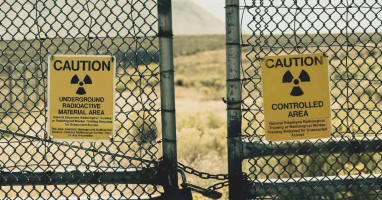
Of course, I don’T want to say that “I myself am not contributing to the world’s worsening by ‘indifference’.” Regardress of whether I enjoy its convenience, just by accepting a world like that, I am also guilty. However, precisely because I’m human like that, I also think there are things I can see objectively.
The movie is not only a very interesting story but also makes you conscious of “imagining the beyond the process.” I think it can be the first step to consciously break away from “indifference.”

Published Kindle books(Free on Kindle Unlimited)
“The genius Einstein: An easy-to-understand book about interesting science advances that is not too simple based on his life and discoveries: Theory of Relativity, Cosmology and Quantum Theory”
“Why is “lack of imagination” called “communication skills”?: Japanese-specific”negative” communication”







コメント